Jerry Lin

The Latest
-
Fed to Hold Rates as Inflation Jitters Mount Amid Trump Tariffs, Mideast Turmoil
The Federal Reserve is widely expected to hold interest rates steady on Wednesday, resisting pressure from President Donald Trump to cut borrowing costs, as escalating tensions in the Middle East and uncertainty over U.S. tariffs cloud the economic outlook. Policymakers continue to weigh competing signals from a slowing domestic economy and mounting inflation risks. 
The Federal Reserve is widely expected to hold interest rates steady on Wednesday, resisting pressure from President Donald Trump to cut borrowing costs, as escalating tensions in the Middle East and uncertainty over U.S. tariffs cloud the economic outlook. Policymakers continue to weigh competing signals from a slowing domestic economy and mounting inflation risks. -
Japan’s Exports to U.S. Plunge Nearly 25% Amid Trump Tariffs, Trade Deficit Hits ¥637.6 Billion
Japan posted a trade deficit of ¥637.6 billion ($4.4 billion) in May as exports slumped 1.7% year-over-year, weighed down by a dramatic 24.7% decline in automobile shipments to the United States following new tariffs imposed by President Donald Trump. The drop in exports marked the sharpest monthly contraction since September 2024, and came alongside a 7.7% fall in imports, driven by weakening domestic demand, Japan's Finance Ministry reported Wednesday. 
Japan posted a trade deficit of ¥637.6 billion ($4.4 billion) in May as exports slumped 1.7% year-over-year, weighed down by a dramatic 24.7% decline in automobile shipments to the United States following new tariffs imposed by President Donald Trump. The drop in exports marked the sharpest monthly contraction since September 2024, and came alongside a 7.7% fall in imports, driven by weakening domestic demand, Japan's Finance Ministry reported Wednesday. -
UK Inflation Holds at 3.4% in May, Keeping Bank of England on Course for Rate Hold
UK inflation eased slightly in May but remained stubbornly above the Bank of England's 2% target, bolstering expectations that policymakers will hold interest rates steady at 4.25% during Thursday's monetary policy meeting. The Office for National Statistics reported Wednesday that the consumer price index rose 3.4% in the 12 months to May, marginally down from April's upwardly revised figure. 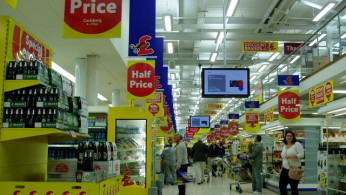
UK inflation eased slightly in May but remained stubbornly above the Bank of England's 2% target, bolstering expectations that policymakers will hold interest rates steady at 4.25% during Thursday's monetary policy meeting. The Office for National Statistics reported Wednesday that the consumer price index rose 3.4% in the 12 months to May, marginally down from April's upwardly revised figure. -
US Retail Sales Fall 0.9% in May as Auto Slump and Tariff Anxiety Hit Spending
Retail sales in the United States declined 0.9% in May, the Commerce Department reported Tuesday, reflecting a sharper-than-expected pullback in consumer spending following a surge in March as buyers rushed to beat tariffs on imported goods. The decline, which exceeded the 0.6% drop forecast by Dow Jones, underscores growing consumer caution amid geopolitical uncertainty and lingering effects from trade tensions. 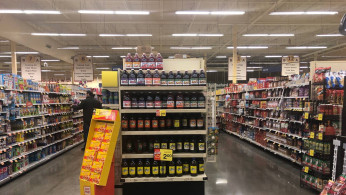
Retail sales in the United States declined 0.9% in May, the Commerce Department reported Tuesday, reflecting a sharper-than-expected pullback in consumer spending following a surge in March as buyers rushed to beat tariffs on imported goods. The decline, which exceeded the 0.6% drop forecast by Dow Jones, underscores growing consumer caution amid geopolitical uncertainty and lingering effects from trade tensions. -
Oil Prices Surge as Israel-Iran Strikes Hit Refineries, Gas Field
Oil prices surged sharply in early Asian trading Monday as Israel and Iran launched direct attacks on each other's energy infrastructure, stoking fears of wider supply disruptions across the Middle East. Brent crude futures rose $2.37, or 3.2%, to $76.60 per barrel, while U.S. West Texas Intermediate climbed $2.39, or 3.3%, to $75.37. Both benchmarks had settled 7% higher Friday, after jumping more than 13% during the session. 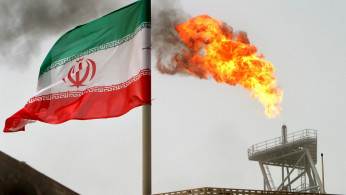
Oil prices surged sharply in early Asian trading Monday as Israel and Iran launched direct attacks on each other's energy infrastructure, stoking fears of wider supply disruptions across the Middle East. Brent crude futures rose $2.37, or 3.2%, to $76.60 per barrel, while U.S. West Texas Intermediate climbed $2.39, or 3.3%, to $75.37. Both benchmarks had settled 7% higher Friday, after jumping more than 13% during the session. -
Oil Soars, Markets Drop as Israel Strikes Iran, Triggering Fears of Wider Middle East Conflict
Global oil prices surged and equity markets tumbled Friday after Israel launched a wave of airstrikes targeting Iranian nuclear and military facilities, killing at least two of Tehran's top commanders and triggering a sharp escalation in Middle East tensions. 
Global oil prices surged and equity markets tumbled Friday after Israel launched a wave of airstrikes targeting Iranian nuclear and military facilities, killing at least two of Tehran's top commanders and triggering a sharp escalation in Middle East tensions. -
UK Economy Shrinks 0.3% in April as Trump Tariffs Slash Exports by Record £2 Billion
The United Kingdom's economy shrank 0.3% in April, marking its steepest monthly contraction since October 2023, as President Donald Trump's new tariffs and domestic tax increases hammered British exports and consumer activity. Data released Thursday by the Office for National Statistics (ONS) revealed widespread declines in manufacturing, services, and exports, dashing government hopes for sustained post-winter growth. 
The United Kingdom's economy shrank 0.3% in April, marking its steepest monthly contraction since October 2023, as President Donald Trump's new tariffs and domestic tax increases hammered British exports and consumer activity. Data released Thursday by the Office for National Statistics (ONS) revealed widespread declines in manufacturing, services, and exports, dashing government hopes for sustained post-winter growth. -
Oil Prices Hit Two-Month High as Trump Touts China Trade Deal, U.S. Inventories Drop 3.6 Million Barrels
Oil prices climbed to their highest levels in more than two months Wednesday, as investors reacted to renewed trade optimism between the U.S. and China and a sharper-than-expected decline in U.S. crude inventories. 
Oil prices climbed to their highest levels in more than two months Wednesday, as investors reacted to renewed trade optimism between the U.S. and China and a sharper-than-expected decline in U.S. crude inventories. -
U.S. Inflation Holds at 2.4% in May Despite Trump’s Tariffs; Core Rate Unchanged at 2.8%
Consumer prices in the U.S. rose less than expected in May, showing limited impact from President Donald Trump's tariff regime, according to new data released Wednesday by the Bureau of Labor Statistics. 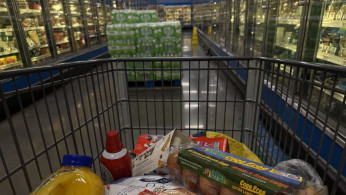
Consumer prices in the U.S. rose less than expected in May, showing limited impact from President Donald Trump's tariff regime, according to new data released Wednesday by the Bureau of Labor Statistics. -
EU Proposes $45 Price Cap on Russian Oil, Targets 400 Shadow Fleet Tankers in Fresh Sanctions Push
Brussels is pushing for a significant tightening of sanctions against Russia, including a proposal to lower the Group of Seven-imposed price cap on Russian oil exports from $60 to $45 a barrel, as the European Union intensifies pressure on the Kremlin to halt its war in Ukraine. 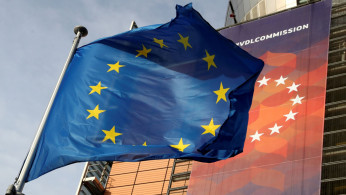
Brussels is pushing for a significant tightening of sanctions against Russia, including a proposal to lower the Group of Seven-imposed price cap on Russian oil exports from $60 to $45 a barrel, as the European Union intensifies pressure on the Kremlin to halt its war in Ukraine.